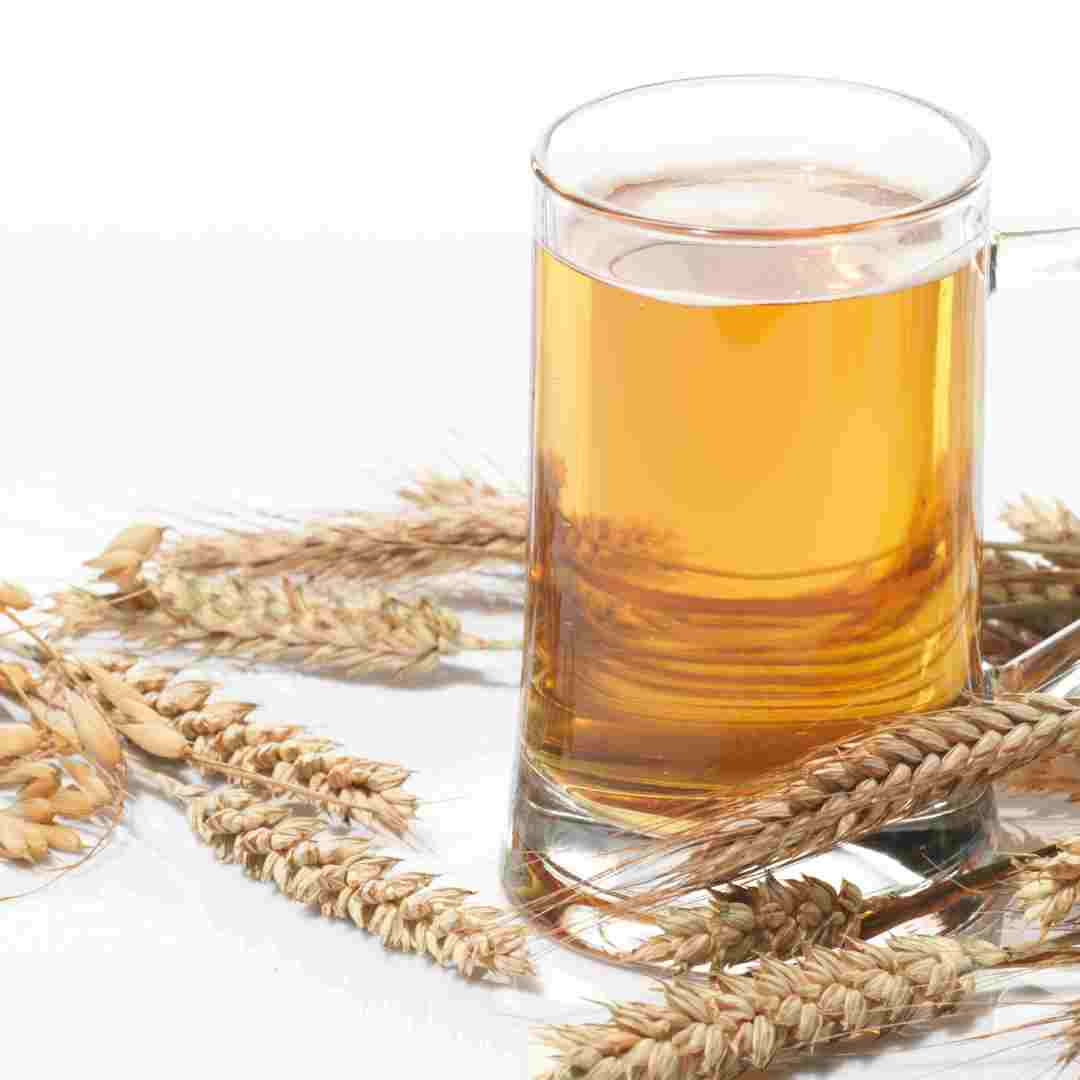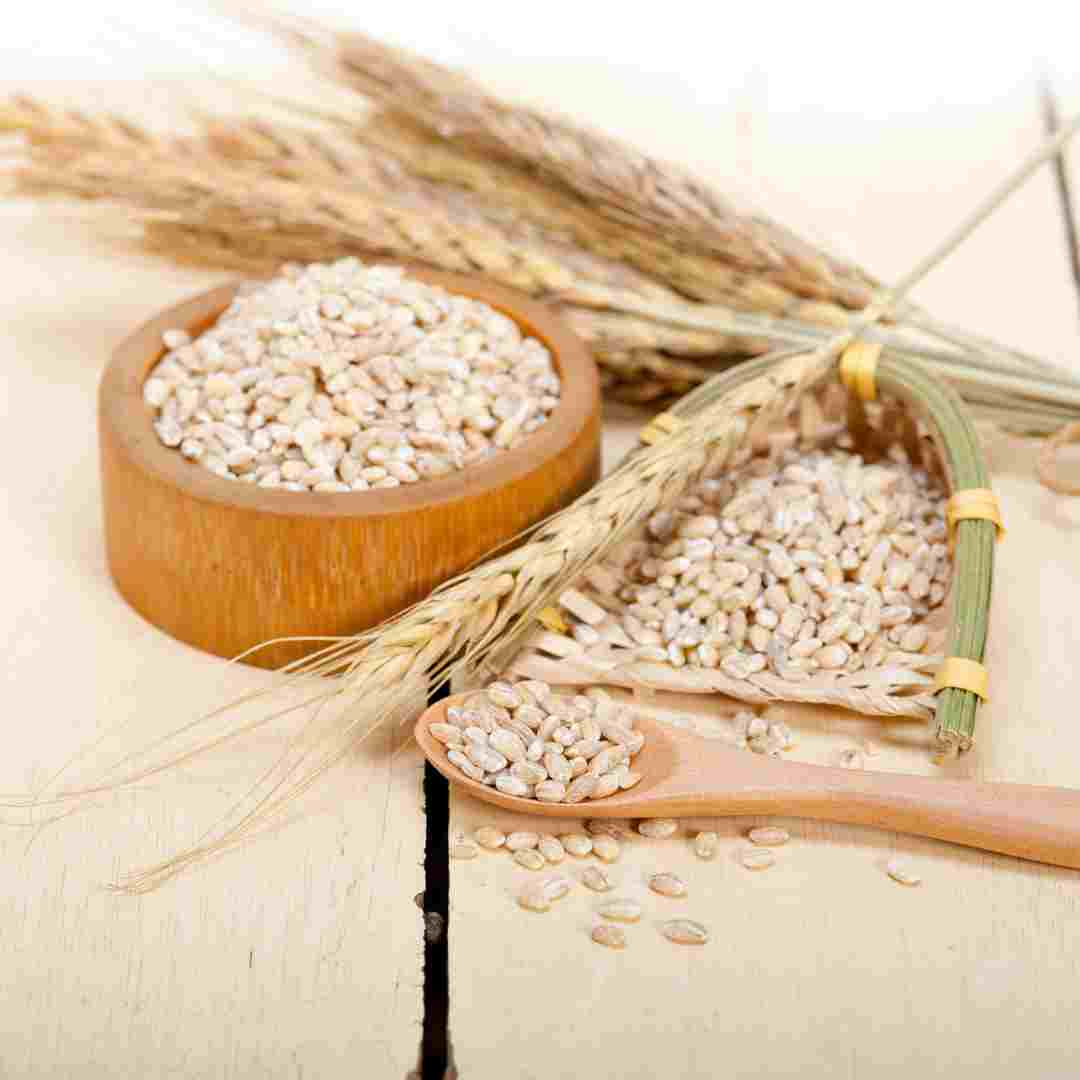All-grain beer requires a few critical components and equipment. A mash tun, brew kettle, thermometer, hydrometer, malted grains, hops, yeast, and water. Mash grains to extract sugars, boil the wort with hops, cool it, then ferment it with yeast.
All-Grain Brewing Basics
All-grain beer is made by fermenting wort from malted grains. Homebrewers like this method because they have more control over the brewing process and product. All-grain brewing basics and step-by-step guidance are covered in this article.
All-grain brewing begins with selecting grains for wort. To achieve flavor and color, a base malt like two-row barley is used with specialty malts. Grain mills crush grains to expose starches.
Mash boiling water with crushed grains. Water temperature controls enzyme activation and wort sugar profile. Depending on the beer style, most mashing is done at 148-158°F.
Lautering separates wort from spent grains after the mash. A lauter tun drains wort while keeping the grain bed. Hops give beer bitterness, flavor, and scent.
After the boil, the wort is cooled and delivered to a fermenter, where yeast starts fermentation. Beer gets its flavor and carbonation from yeast, which ferments wort carbohydrates into alcohol and CO2.
With practice, all-grain brewing is simple. We offer a step-by-step guide to all-grain beer making.
Step 1: Get Your Gear
All-grain brewing requires a few essentials. A mash tun, lauter tun, brew kettle, fermenter, and grain mill are used. A thermometer, hydrometer, and immersion chiller are needed to cool the wort.
Step 2: Select Grains
Choose grains for wort. To achieve flavor and color, a base malt like two-row barley is used with specialty malts. A grain mill should smash grains to expose starches.
Step 3: Mash Grains
Mash grains with boiling water. Water temperature controls enzyme activation and wort sugar profile. Depending on the beer style, most mashing is done at 148-158°F.
Step 4:
Lauter wort from wasted grains. A lauter tun drains wort while keeping the grain bed.
Step 5: Boil the Wort
Hops add bitterness, flavor, and scent. Beer style determines boil length and hops.
Step 6: Cool the Wort
After boiling, chill the wort to fermentation temperature. Use an immersion chiller or other cooling method.
Step 7: Ferment Beer
Start fermentation by adding yeast to the cooled wort in a fermenter. The yeast consumes wort carbohydrates and produces alcohol and carbon dioxide, giving the beer its flavor and carbonation.
In conclusion, all-grain brewing is a fun hobby that gives you more control over the process and the beer. This post will help you make excellent, unique beers to impress your friends and family. Why not attempt all-grain brewing to make fantastic beers?
All-Grain Brewing Step-by-Step
Get Your Gear
Gather all the equipment before brewing. This contains a big pot for boiling the wort, a mash tun for steeping the grains, a thermometer, hydrometer, fermenter, and other instruments. All-grain brewing kits can be bought or built.
Mill Grains
Milling your grains requires equipment. Crushing malted grains releases starches. Use a grain mill to crush grains or buy them pre-milled. A uniform brew requires evenly crushed grains.
Mash Grains
Mash your grains. Steeping crushed grains in hot water extracts sugars and creates wort. Beer type determines mash temperature and length. Most beers are best at 150-155°F.
Sparge Grains
Sparge grains after the mash. Rinsing grains with hot water extracts any leftover sugars. Sparge grains with a sparge arm or colander. To avoid channeling and guarantee consistency, sparge slowly and evenly.
Boil Your Wort
After collecting the wort, boil it. This entails boiling the wort and adding hops and other ingredients as desired. The recipe and flavor profile determine boil time. Boil time should be 60–90 minutes.
Cool Your Wort
After boiling, cool your wort. Put the pot in an ice bath or use a wort chiller. Cooling the wort fast prevents contamination and ensures a clear brew.
Ferment Beer
Transfer cooled wort to a fermenter and add yeast. Yeast consumes wort carbohydrates and produces alcohol and carbon dioxide. Recipe and alcohol content determine fermenting time. Fermentation should last 1-2 weeks.
Bottle/Keg Your Beer
Bottle or keg beer after fermentation. To carbonate beer, add priming sugar before bottling. A CO2 tank can force-carbonate kegged beer. To develop flavor, store beer in a cold, dark environment.
In conclusion, all-grain brewing is a fun hobby that gives you more control over the process and the beer. These easy techniques let you make excellent, distinctive brews at home. Brew well!
Advanced All-Grain Brewing
First, learn all-grain brewing basics. Mash, lauter, boil, ferment. Creating wort from crushed grains and boiling water is called mashing. Lautering separates wort from grains. Hops are added to the wort and boiled for a specific time. Finally, yeast ferments the cooled wort into beer.
Step mashing is a complex all-grain brewing procedure. Step mashes activate grain enzymes by raising the mash temperature at intervals. This makes the beer more delicious and complex. Step mashing requires a temperature-controlled mash pot. Add grains and water to the mash tun and heat to the first temperature. Hold the mash at this temperature for a certain time, then raise it to the next step and hold it for another set time. Repeat until your mash temperature is attained.
Decoction mashes are another advanced all-grain brewing method. A decoction mash is made by boiling a portion of the mash and adding it back. This can enrich and complicate beer. Heat your mash to the first temperature to a decoction mash. Boil some of the mash in a separate saucepan. Add the boiled mash to the main mash. Repeat until your mash temperature is attained.
Sour mashes are a third advanced all-grain brewing technique. Sour mashes ferment before adding yeast. This makes sour beer. Sour mashes begin by heating the mash to the first temperature. After cooling to 120°F, add a little fermented mash or sour beer. After 12–24 hours, heat the mash and continue brewing.
Finally, water chemistry matters when brewing all-grain. Beer flavor depends on the mash pH. Minerals or acid/alkaline solutions can change the pH. Water minerals can affect beer flavor.
All-grain brewing is satisfying and difficult. Step mashing, decoction mashing, sour mashing, and water chemistry can produce complex, tasty beer. Mastering all-grain brewing takes experience and experimenting.

Q&A
1. What equipment is needed to make all-grain beer? A mash tun, brew kettle, hot liquor tank, thermometer, hydrometer, grain mill, wort chiller, and fermenter are needed.
2. How is all-grain beer made?
Mash the grains with hot water to convert starches into fermentable sugars, sparge to rinse the grains and collect the sweet wort, boil the wort with hops, cool the wort, and ferment the beer with yeast.
3. Any all-grain beer brewing tips? Use high-quality ingredients, maintain proper temperatures, measure and adjust the mash pH, and oxygenate the wort before pitching the yeast. Sanitizing equipment and keeping the brewing area clean prevents contamination.
Mash crushed grains with hot water to extract sugars to create all-grain beer. To extract the most sugar, sparge the grains after the mash. After boiling the wort with hops and other ingredients, chill and ferment the beer. Brewing requires suitable sanitation and temperatures. All-grain beer may be excellent and unique with practice and attention to detail.
